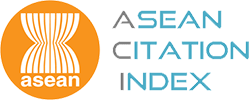SOCIAL MEDIA AND ETHICAL LIMITATIONS TO MALAYSIAN JUDICIARY
DOI:
https://doi.org/10.32890/uumjls2024.15.1.6Abstract
The use of social media is widely accepted as an important tool to spread information easily and quickly. Judges must read and share opinions towards current and latest information using social media. As such, compliance with the adoption and exchange of information through the responsible use of social media for joint discussions is expected from judges and judicial members. The public confidence in the judicial system will diminish if the judges display improper online conduct. Therefore, the objective of this article is to identify the ethical limitation of the judges’ capacity in using social media for the maintenance of judicial integrity. By summarizing and reviewing the existing relevant framework, this article proposes a persistent and reasonable guideline on the use of social media for the judiciary following the growing risks posed by social media. Furthermore, judges and judicial officers might better exercise extreme care while requesting and accepting friend requests, including social media postings to avoid the manifestation of safety. Local judicial ethics advisory opinions are needed to prepare revised guidelines following the changing social media features.










